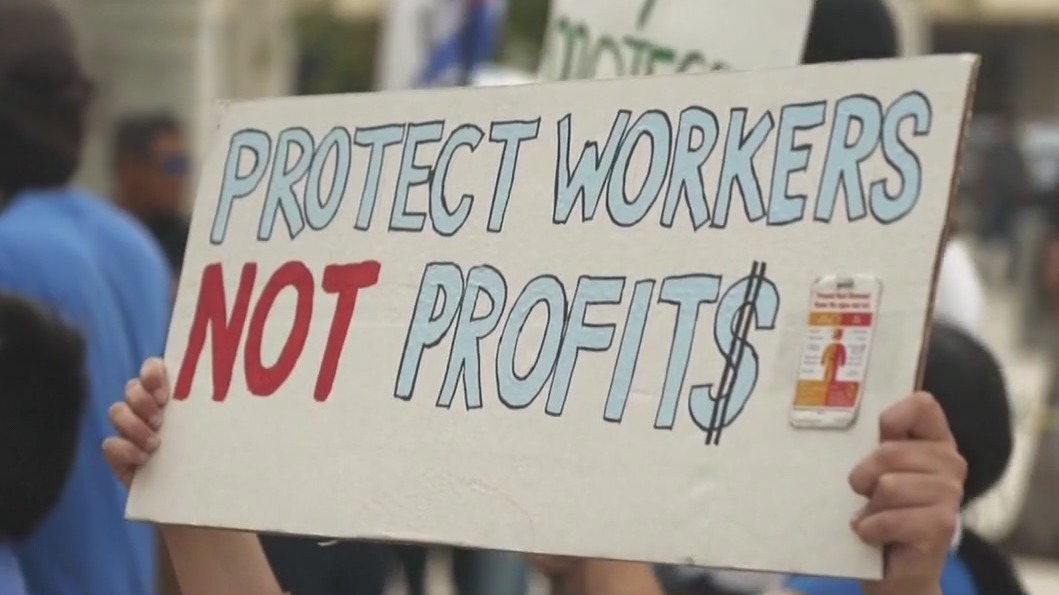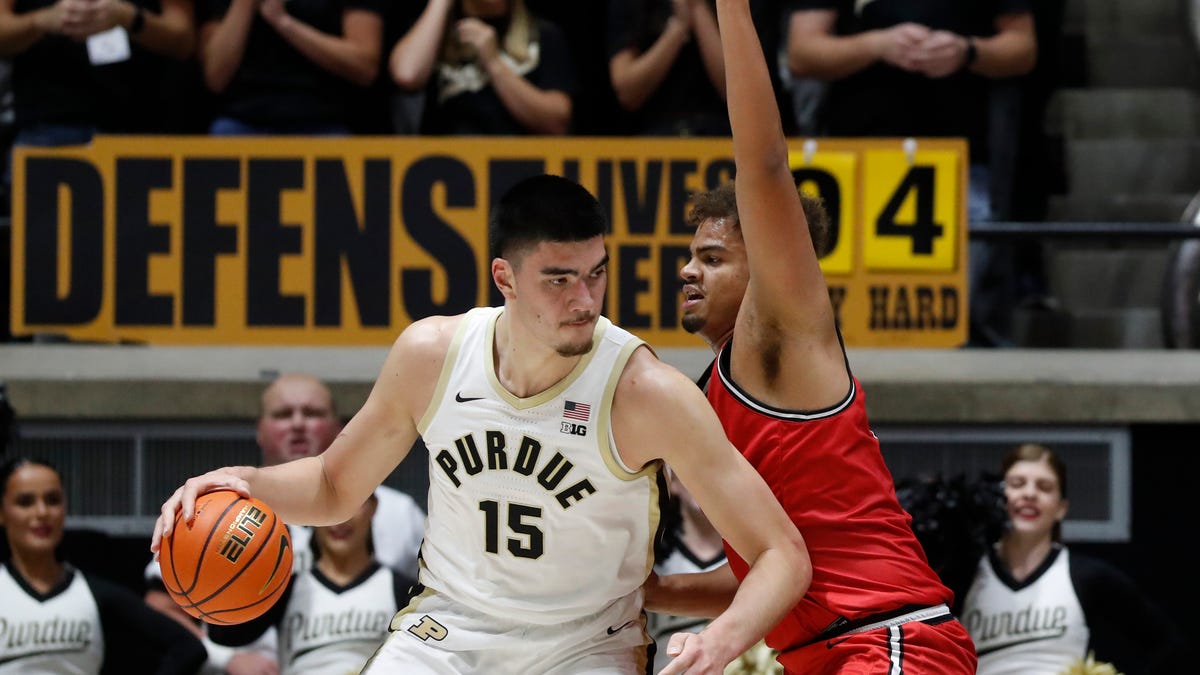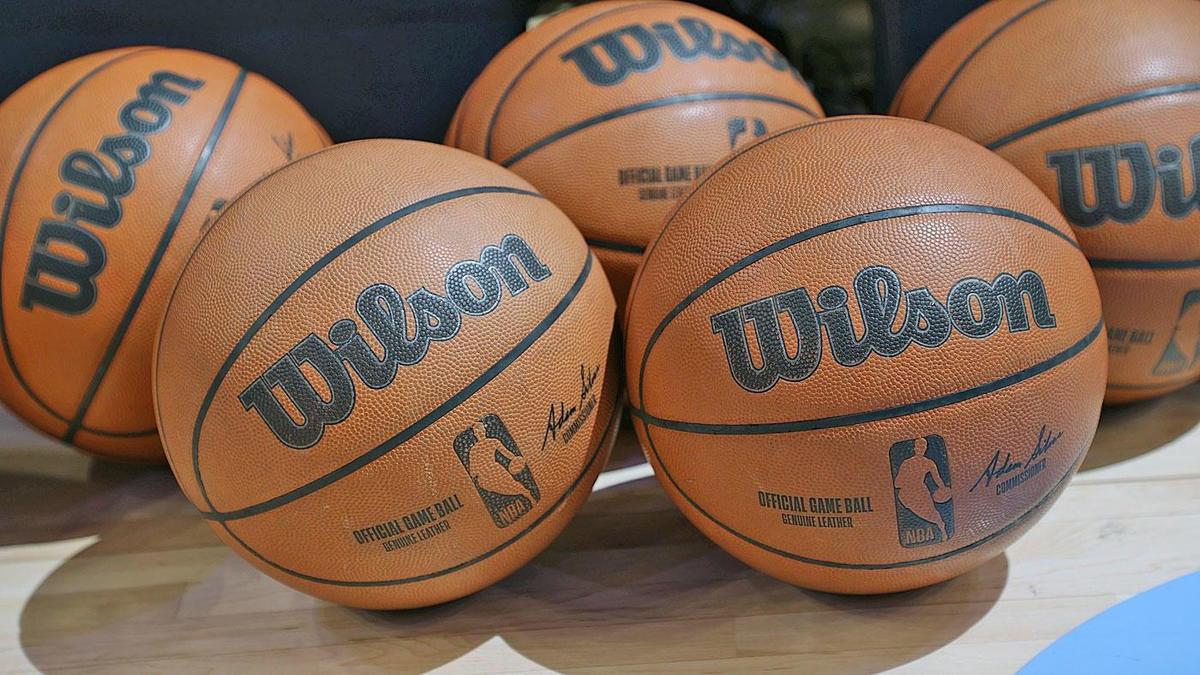Florida
Florida joins Texas in banning local heat protections for outdoor workers

Only five states offer statewide heat protections for outdoor workers. Some of the nation’s hottest states, including Texas, Arizona and now Florida, do not.
Judge: Migrants flown by Gov. DeSantis can sue
A federal judge ruled on Monday that migrants flown to Martha’s Vineyard by Florida Gov. Ron DeSantis can sue the charter flight company that carried them.
Fox – 13 News
Florida will become the second state to stop local governments from requiring heat protection for outdoor workers after Republican Gov. Ron DeSantis signed House Bill 433.
The law, which DeSantis signed last week, goes into effect on July 1 and establishes multiple restrictions for city and county governments, including the ability to set heat exposure requirements not already required under state or federal law.
Republican Rep. Tiffany Esposito of Fort Myers, who sponsored the House version of the bill, told reporters that her husband has worked in South Florida’s construction sector for two decades and that she knows the industry takes worker safety seriously.
“This is very much a people-centric bill,” Esposito said. “If we want to talk about Floridians thriving, they do that by having good job opportunities. And if you want to talk about health and wellness, and you want to talk about how we can make sure that all Floridians are healthy, you do that by making sure that they have a good job. And in order to provide good jobs, we need to not put businesses out of business.”
Around two million people in Florida work in outdoor jobs, from construction to agriculture, according to the Union of Concerned Scientists. On average, the state’s summer can reach up to 95 degrees, with the humidity and blazing sun making it feel well over 100 at times.
What is HB 433?
House Bill 433, referred to as the Employment Regulations Bill, says it seeks to “prohibit political subdivisions (city and county governments) from maintaining a minimum wage other than a state or federal minimum wage; prohibit political subdivisions from controlling, affecting, or awarding preferences based on the wages or employment benefits of entities doing business with the political subdivision; revise and provide applicability.”
Regarding heat exposure protections, the bill’s summary details it will prohibit political subdivisions from:
- Requiring an employer, including an employer contracting with the political subdivision, to meet or provide heat exposure requirements not otherwise required under state or federal law.
- Giving preference, or considering or seeking information, in a competitive solicitation to an employer based on the employer’s heat exposure requirements.
The bill’s analysis dives deeper into the decision to regulate heat exposure protections, saying the Occupational Safety and Health Administration (OSHA) has developed the best practices over the years. It adds that recognizing that preventing heat-related illnesses “requires education and close collaboration between employers and employees.”
“Whereas local governments have started to adopt their own workplace heat exposure requirements, some of which apply only to specific industries, which ignore the individual responsibility of an employee to follow relevant guidelines and to protect himself or herself from heat-related illnesses, and rely on fines and penalties assessed on employers to fund the enforcement of such requirements,” according to the bill.
Baltimore bridge collapse: Authorities recover fourth body from Key Bridge wreckage
What are Florida’s statewide heat exposure protections?
Despite outlining in its summary that counties and cities would have to adopt the state’s stances on heat exposure protection, Florida does not have any statewide standard. However, the bill’s text heavily supports OSHA’s guidelines regarding the subject.
Florida is under federal OSHA jurisdiction, which covers most private-sector workers within the state. State and local government workers are not covered by federal OSHA.
OSHA has a “general duty clause” that requires employers to provide workplaces “free from recognized hazards that are causing or are likely to cause death or serious physical harm.” That includes heat-related hazards that are likely to cause death or serious bodily harm.
Global event: Coral bleaching caused by warming oceans reaches alarming globe milestone, scientists say
What does HB 433 mean for workers in Florida cities and counties?
Overall, the legislation would make any local heat protection measures “void and prohibited,” within all 67 Florida counties.
In Miami-Dade County, this legislation would kill the county’s proposal to require 10-minute breaks in the shade every two hours for any outdoor construction or farm workers. After negotiating for years, county commissioners had the item on their agenda up until the law was signed.
In a Friday press conference, DeSantis addressed the bill, saying “there was a lot of concern out of one county, Miami-Dade.
“And I don’t think it was an issue in any other part of the state,” he said. “I think they were pursuing something that was going to cause a lot of problems down there.”
Luigi Guadarrama, political director of the Sierra Club Florida, said in a statement that the new law is the latest example of DeSantis failing the state’s environment, economy and workers.
“Instead of addressing the skyrocketing crisis of protecting our workforce, the governor chose to abandon millions of hard-working Floridians and leave our state more vulnerable to the impacts of climate change,” Guadarrama said. “He has consistently ignored the real issues affecting Florida’s families to appease his donors and large corporations.”
How many heat-related deaths does Florida have a year?
From 2010 to 2020, the University of Florida recorded 215 heat-related deaths occurred in Florida, with the number of yearly deaths varying between 10 and 28.
According to the Centers for Disease Control and Prevention, average annual heat-related deaths have risen 95% from 2010 to 2022, with about 1,200 people in the U.S. dying every year from them.
Florida is projected to experience more days of extreme heat this summer (when temperatures are at least 95 degrees), compared to averages over the last 30 years, according to the Florida Climate Center at Florida State University.
What other state ended local heat protection ordinances?
Texas halted the ability of city and county governments to mandate protections for outside workers last year with House Bill 2127.
Republican Gov. Greg Abbott signed the bill on June 13 and it went into effect on Sept. 1. The law ended safeguards like the city of Austin’s 2010 ordinance mandating construction sites offer rest and water breaks for at least 10 minutes every four hours and the city of Dallas’ similar ordinance in 2015.
San Antonio was considering a similar measure ahead of HB 2127’s approval.
What states have heat protections in place?
Only five states offer statewide heat protections, with California being the first after four farm workers died of heat stroke in 2005.
The following states require employers to provide shade and water amidst soaring temperatures:
- California
- Colorado
- Minnesota
- Oregon
- Washington

Florida
Get to know Florida State DE Jared Verse | Pick 19

3) Dad had major impact on looking the part to play defensive end
In an NFL Scouting Combine interview with Pro Football Talk’s Mike Florio and Chris Simms, Verse said his dad bought equipment so that he could lift weights during COVID when everything was shut down. He worked out “religiously” on that set, and came back to Albany the fall of his second season weighing in around 245-250 pounds.
“Ended up going back to Albany in the fall, and a lot of my teammates thought I was on steroids,” Verse told Florio and Simms.
Florida
Florida farmworkers protest new law banning local water, heat break requirements for outdoor workers

Florida farmworkers concerned after recent bill
Florida farmworkers are expressing concern after a recent bill prohibits cities and counties from protecting outdoor workers, including mandatory water breaks.
TAMPA, Fla. – Florida’s farmworkers are expressing concern over the recent approval of a law banning local jurisdictions from requiring mandatory heat and water breaks for outdoor workers.
READ: DeSantis signs bill banning Florida counties from requiring heat and water breaks for outdoor workers
HB 433 prohibits Florida cities and counties from establishing any protections for outdoor workers. That includes mandatory water breaks.
It’s no secret that outdoor workers, particularly farmworkers, are important to the Sunshine State, especially with so much of the state’s economy hinging on agriculture.
WATCH FOX 13 NEWS
That’s why many of those workers and their supporters took to the streets in Homestead on Sunday to march against House Bill 433.
One of the groups leading the charge was WeCount!, an organization in South Florida made up of farm, plant nursery, and construction workers.
“For counties and cities to basically be handcuffed and be unable to implement basic protections is incredibly cruel,” said Esteban Wood, policy director of WeCount! “And it’s incredibly dangerous as a public policy issue.”
SIGN UP: Click here to sign up for the FOX 13 daily newsletter
“With this law HB 433, our hands are completely tied; our community already has many rights violations in this type of work, [and] there are already many fears, and because of this law passed – the anti-immigrant law – people are afraid to speak,” said Yesica Ramirez, of the Farmworker Association of Florida.
Miami-Dade County was set to be the first in Florida to pass these types of protections. Their ordinance would have required employers to establish things like mandatory shade requirements, water accessibility, and – depending on the heat – ten-minute breaks for every two hours of work.
But that ordinance is now abandoned because all of those protections would have been in direct violation of HB 33. Governor DeSantis signed the bill earlier this month, and it is set to take effect on July 1.
Florida
Eastern Florida State College Softball Punches Ticket to State Tournament in Clearwater – Space Coast Daily

tournament begins May 8
BREVARD COUNTY, FLORIDA – The Eastern Florida State College softball team clinched a spot in the FCSAA Division I/NJCAA South Atlantic District Championships with a win on Saturday.
The Titans, who finished the regular season 22-22 in the Citrus Conference, defeated the State College of Florida Manatee 6-3 in the first game and then lost the second game 5-2 on the road.
Eastern Florida State College will compete in the tournament beginning May 8 at the Eddie C. Moore Complex in Clearwater. It will be the first time the Titans will be in the tournament since 2019.
In Game 1, the Titans scored in the third inning as Brooke Theisen doubled, bringing home Marisa Shoudt. SCF-Manatee would tie the game in the fourth inning. But in the fifth inning, the Titans would score twice and then three more times in the seventh inning to pick up the win.
Hannah Strickland would pick up the win, her 16th of the season and Alanna O’Brien came in to pick up the save, her seventh of the season.
Theisen had two hits in the games for the Titans and Shoudt and Livie Davis each scored twice.
In Game 2, the Titans scored runs in the second and third innings, but SCF-Manatee would tie the game in the bottom of the third and take the lead with three runs in the fourth inning.
Destiny Lake came in and tossed two scoreless innings of relief for the Titans, striking out one.
Eastern Florida State College now has 37 wins on the season which ties the 2011 team with the most wins in the past 30 years. They will wait to see who they will face in the first round of the state tournament.
CLICK HERE FOR BREVARD COUNTY NEWS

-

 Kentucky1 week ago
Kentucky1 week agoKentucky first lady visits Fort Knox schools in honor of Month of the Military Child
-

 News1 week ago
News1 week agoIs this fictitious civil war closer to reality than we think? : Consider This from NPR
-

 World1 week ago
World1 week agoShipping firms plead for UN help amid escalating Middle East conflict
-

 Politics1 week ago
Politics1 week agoICE chief says this foreign adversary isn’t taking back its illegal immigrants
-

 Politics1 week ago
Politics1 week ago'Nothing more backwards' than US funding Ukraine border security but not our own, conservatives say
-

 News1 week ago
News1 week agoThe San Francisco Zoo will receive a pair of pandas from China
-

 World1 week ago
World1 week agoTwo Mexican mayoral contenders found dead on same day
-

 Politics1 week ago
Politics1 week agoRepublican aims to break decades long Senate election losing streak in this blue state


















